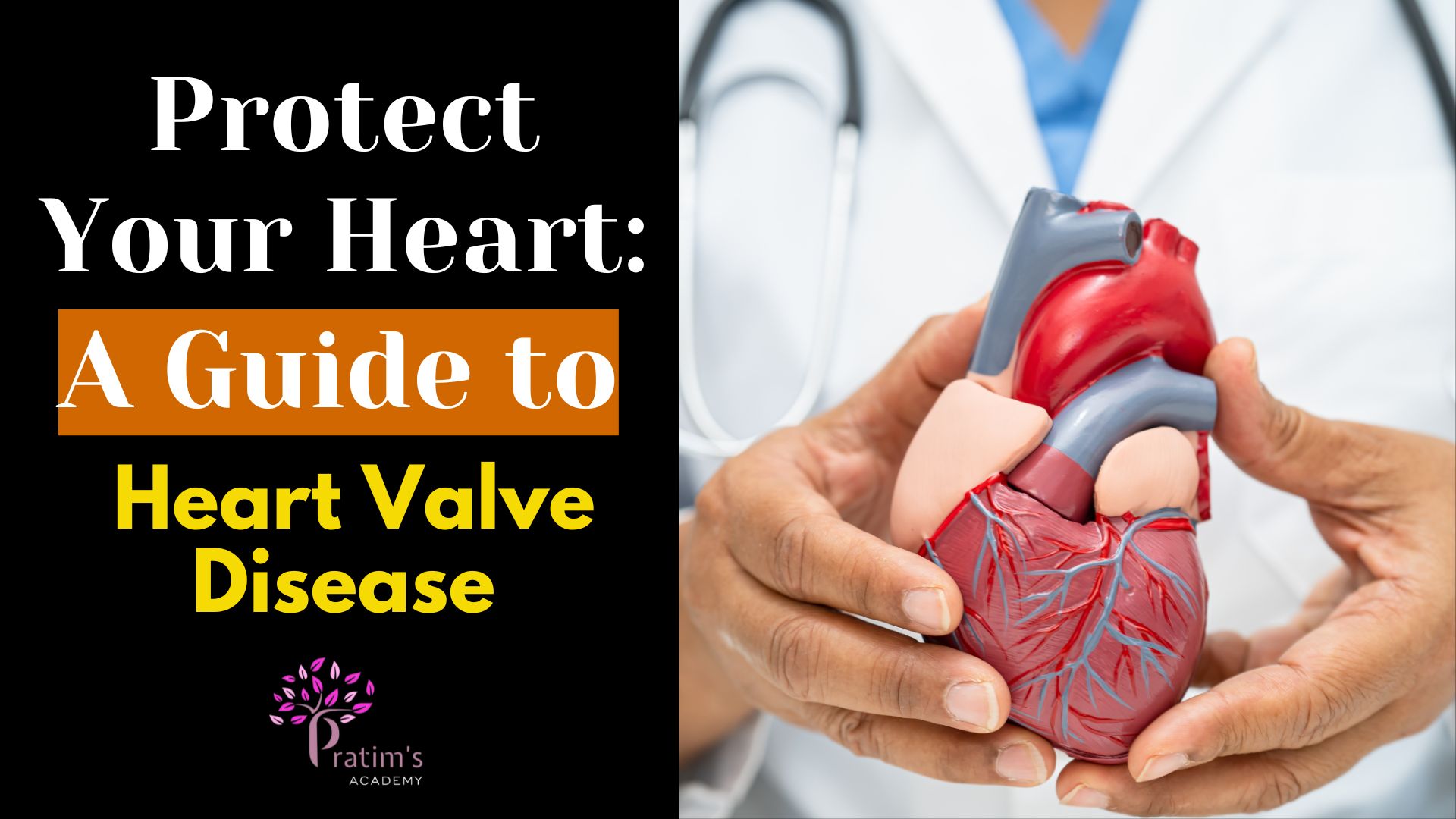Protect Your Heart: A Guide to Heart Valve Disease
The heart is the engine of the human body, working around the clock to circulate blood. With each beat, it ensures oxygen and nutrients reach every cell. It relies on four valves—mitral, aortic, tricuspid, and pulmonary—to maintain smooth, one-way blood flow. But when these delicate gatekeepers fail, the heart’s rhythm of life is thrown into chaos. Malfunctioning valves due to narrowing, leakage, or improper closure force the heart to work harder, leading to complications like breathlessness, fatigue, and even heart failure.
Heart valve disease can be silent or symptomatic, ranging from mild leaks to life-threatening blockages. Understanding this condition is crucial for early detection, timely treatment, and maintaining a healthy heart.
Types of Heart Valve Disease
Heart valve disease occurs when one or more of the heart’s four valves—mitral, aortic, tricuspid, and pulmonary—do not function properly. The main types include:
- Stenosis – The valve becomes thickened or stiff, restricting blood flow. Examples include aortic stenosis and mitral stenosis.
- Regurgitation (Insufficiency) – The valve fails to close properly, causing blood to leak backward. Common examples are mitral regurgitation and aortic regurgitation.
- Prolapse – The valve’s flaps bulge backward, preventing proper closure. Mitral valve prolapse (MVP) is a common condition in this category.
- Atresia – A congenital defect where a valve is malformed or missing, blocking blood flow. Pulmonary atresia is an example of this condition.
Each of these conditions affects blood circulation and may lead to serious complications if left untreated. Early diagnosis and appropriate treatment can help manage symptoms and prevent further damage.
Valves Most Commonly Affected
- Aortic Valve – Aortic stenosis, aortic regurgitation
- Mitral Valve – Mitral stenosis, mitral regurgitation, mitral valve prolapse
- Tricuspid Valve – Tricuspid regurgitation, tricuspid stenosis
- Pulmonary Valve – Pulmonary stenosis, pulmonary atresia
Would you like to know the symptoms or treatment options for specific types?
Symptoms of Heart Valve Disease
The symptoms of heart valve disease can vary depending on the severity of the condition. Common signs include:
- Difficulty breathing, especially during physical activity or while lying down
- Unusual fatigue or weakness
- Chest pain or discomfort
- Dizziness or fainting episodes
- Irregular heartbeat (palpitations)
- Swelling in the ankles, feet, or abdomen
- Heart murmur, which can be detected during a medical examination
Treatment for Heart Valve Disease
The choice of treatment depends on the severity of the condition and the specific valve affected. Common treatment options include:
- Medications – Used to manage symptoms, such as blood thinners, diuretics, and beta-blockers.
- Lifestyle Modifications – Adopting a heart-healthy diet, engaging in regular exercise, quitting smoking, and maintaining controlled blood pressure.
- Valve Repair Surgery – A procedure to fix a damaged valve instead of replacing it.
- Valve Replacement Surgery – The replacement of a damaged valve with either a mechanical or biological valve.
- Minimally Invasive Procedures – Techniques such as Transcatheter Aortic Valve Replacement (TAVR) for high-risk patients.
Prevention of Heart Valve Disease
While not all cases can be prevented, certain measures can help reduce the risk:
- Keeping blood pressure and cholesterol levels under control
- Preventing infections, especially strep throat, to reduce the risk of rheumatic fever
- Following a heart-healthy diet that is low in salt, unhealthy fats, and sugar
Join our WhatsApp diet group to learn more about maintaining a heart-healthy diet!
- Engaging in regular physical activity, as recommended by a doctor
- Avoiding smoking and excessive alcohol consumption
- Managing diabetes effectively
- Undergoing routine heart check-ups, particularly for individuals with a history of heart
Conclusion
Your heart works tirelessly to keep you alive—so why not return the favor? Heart valve disease may sound daunting, but with early detection, proper treatment, and a heart-healthy lifestyle, you can take control of your well-being. Simple changes like regular exercise, a balanced diet, and routine check-ups can make a world of difference. By staying informed and proactive, you can ensure that your heart continues to beat strong for years to come. Prioritize your heart today—it’s the rhythm of your life! ❤️💙
If you or a loved one experiences symptoms of valve disease, consider scheduling a consultation with the Vivacity Multi-specialty Hospital today. Don’t delay seeking treatment early intervention is vital.



